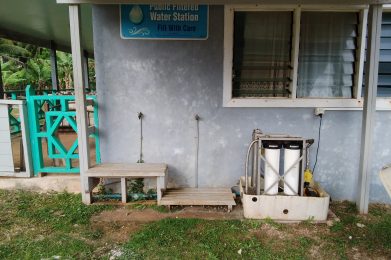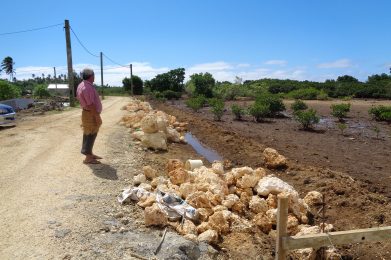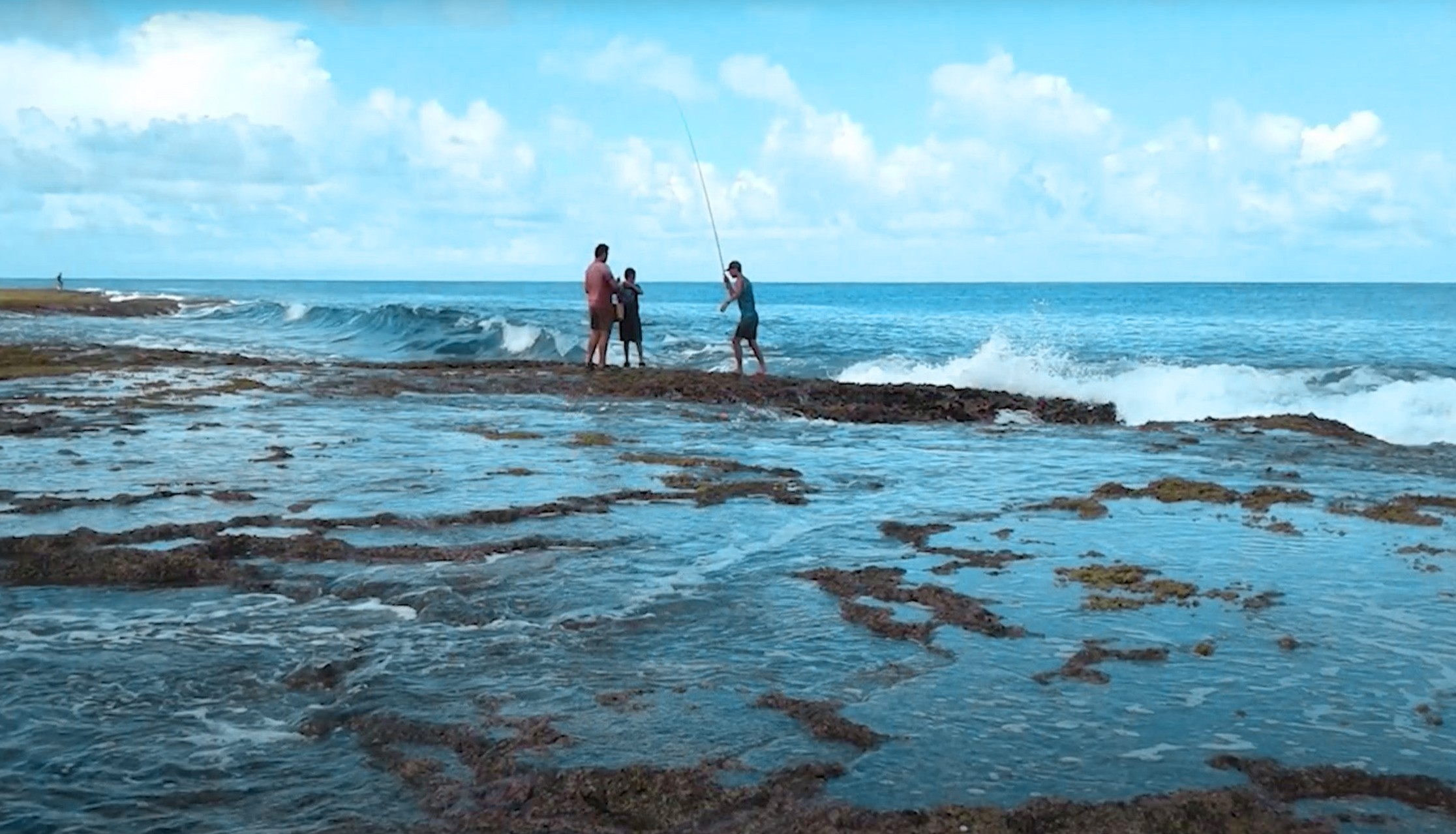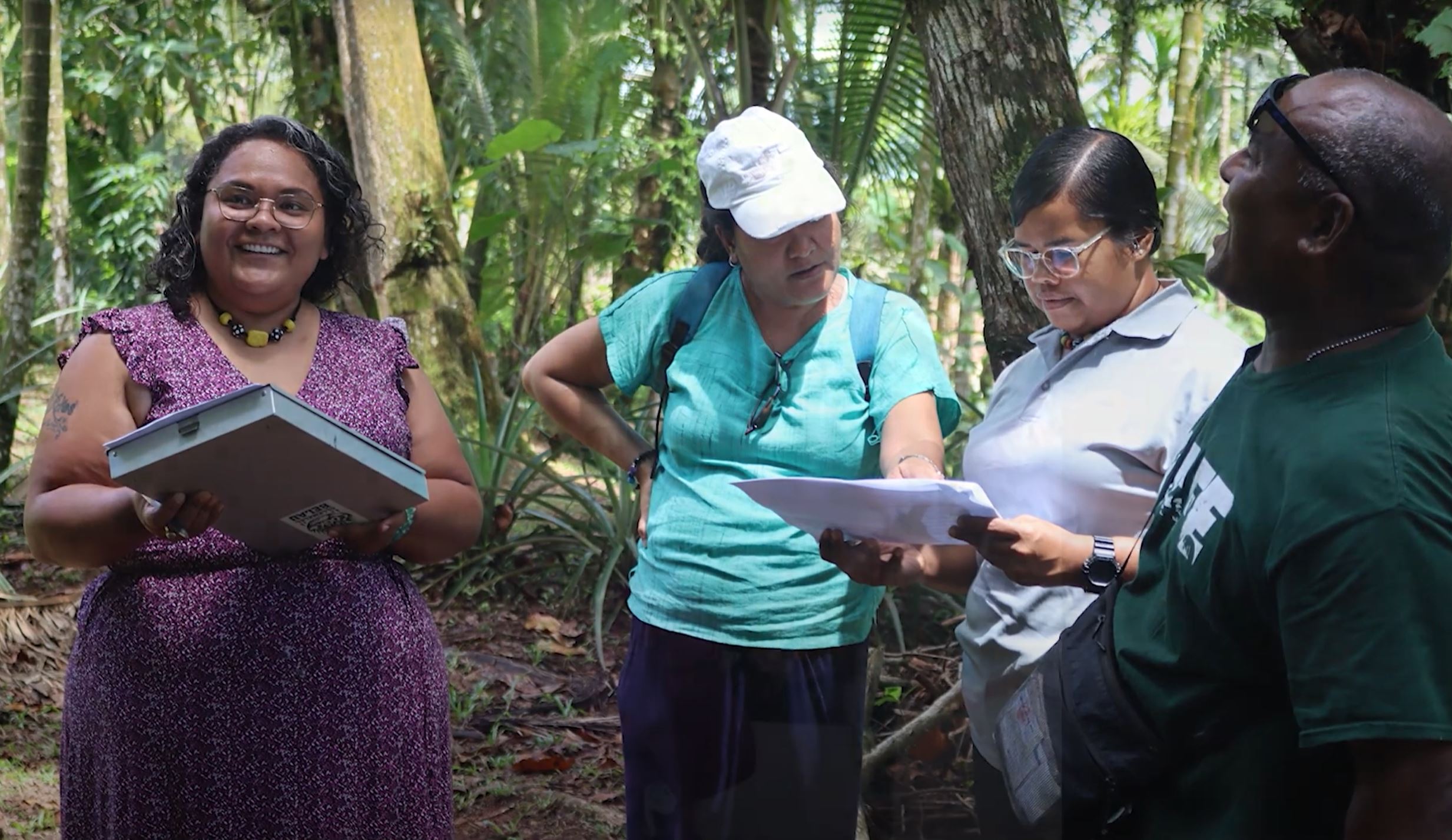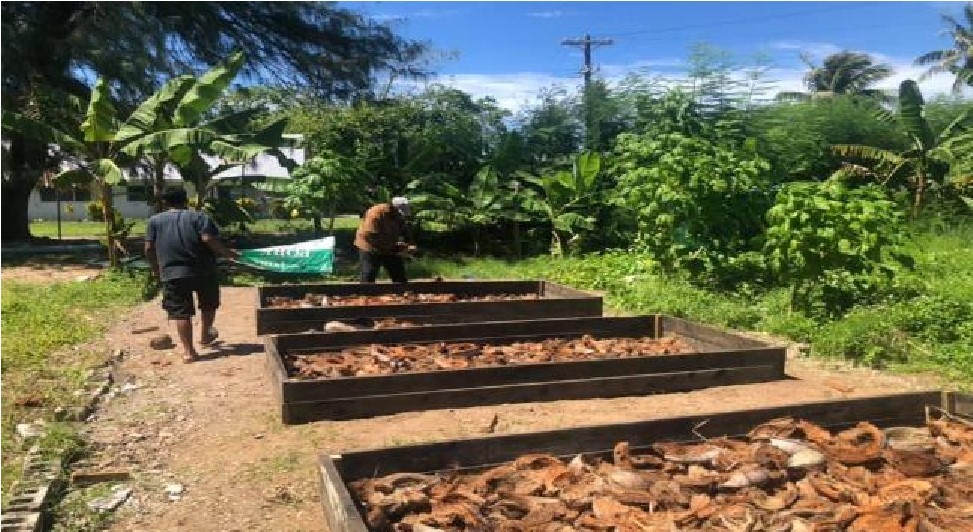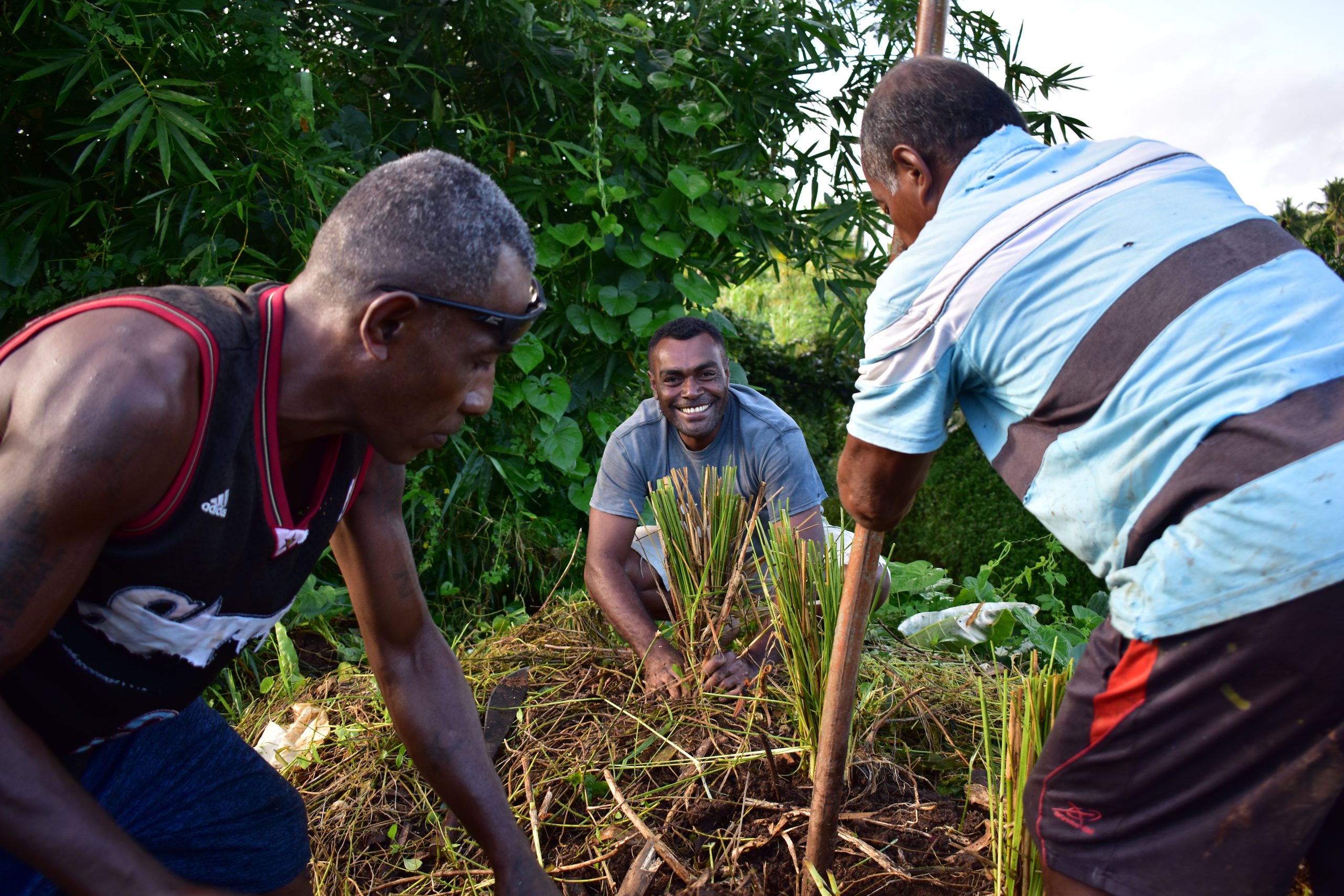Learning from the past to impact the future series
Field trial of Impact Assessment tools
Palau
The story of resiliency for communities in Palau requires looking back in time to examine and learn from the impact of previous climate change adaptation work to inform future planning. Palau is one of four countries that cooperated with the field testing of an impacts analysis methodology as part of the GCCA+ SUPA project.
Federated States of Micronesia
The Micronesia Conservation Trust with the help of the Department of Environment, Climate Change and Emergency Management (DECEM) staff field tested the tailored tools for impact assessment of past interventions set out to address water storage capacity at Nukuoro atoll, about 300 miles southwest of Pohnpei main island.
Cook Islands
In Mangaia, the southernmost island in the Cook Islands group, results of a recent impact analysis methodology of past climate change adaptation interventions highlighted the important role local indigenous knowledge played in complimenting tangible on-the-ground actions in building the resilience of the Mangaian people to the shocks and impacts of climate change.
Tonga
Tonga is the first of four trial countries that cooperated with the field testing of an impacts analysis methodology as part of the European Union funded Global Climate Change Alliance Plus – Scaling Up Pacific Adaptation (GCCA+ SUPA) project. The Tonga engagement began with profiling the recent history of adaptation work from various climate change adaptation projects
Videos: Trial experience - impacts Analysis (IA) Methodology reflection
Palau
This video highlights the efforts geared towards building resiliency and how different agencies learn and view the potential of the methodology to enhance their programme of work at national and state level.
Cook Islands
This video highlights the important role of traditional leadership and the mana of ra’ui. A case of local indigenous knowledge contributing to tangible on-the-ground actions by the Pa Enua, Mangaia and reflections from the training on the light version tools of the impact methodology.
- Posted by
- Zhiyad Khan
Share
Facebook
Twitter
LinkedIn



